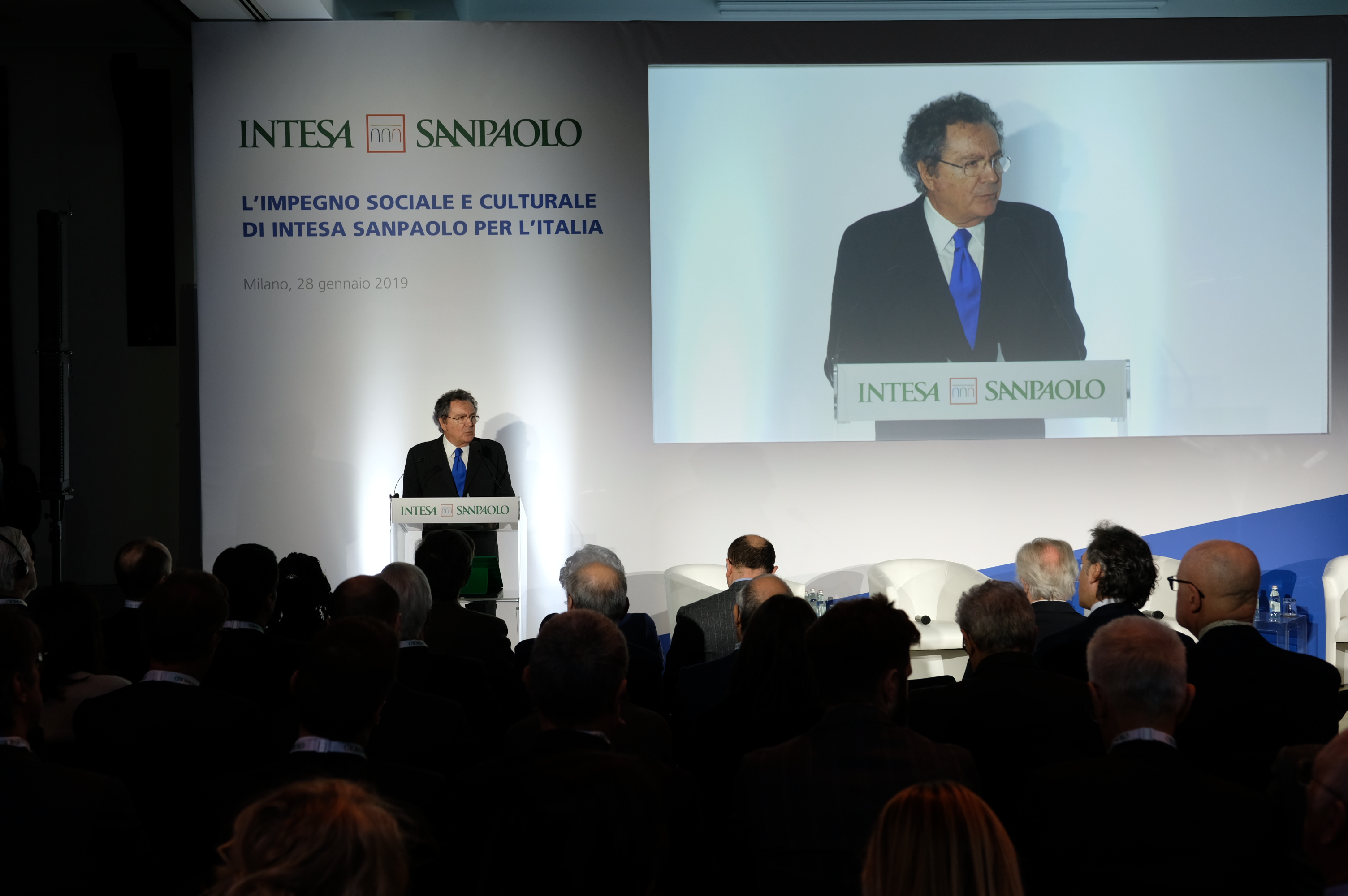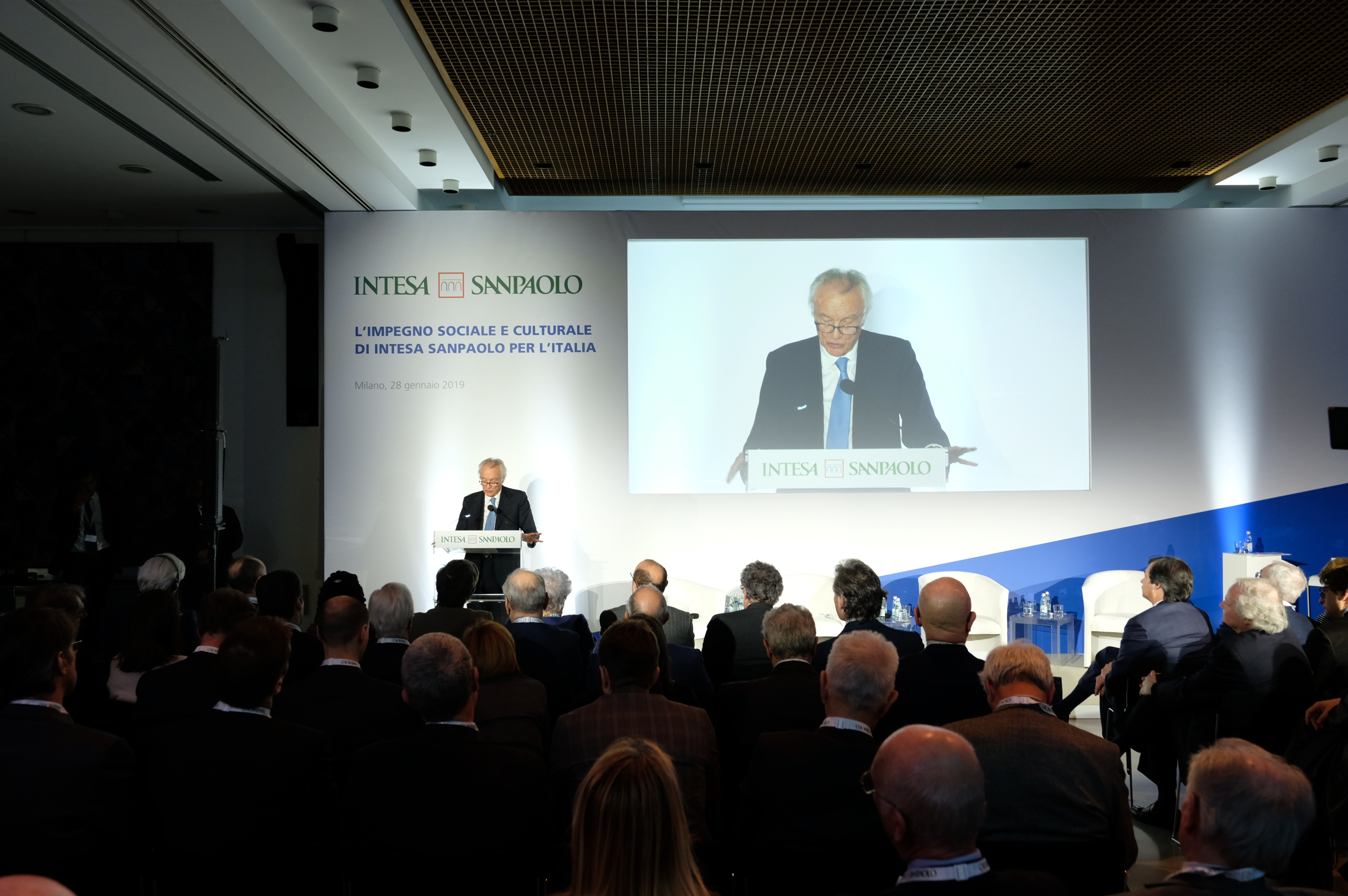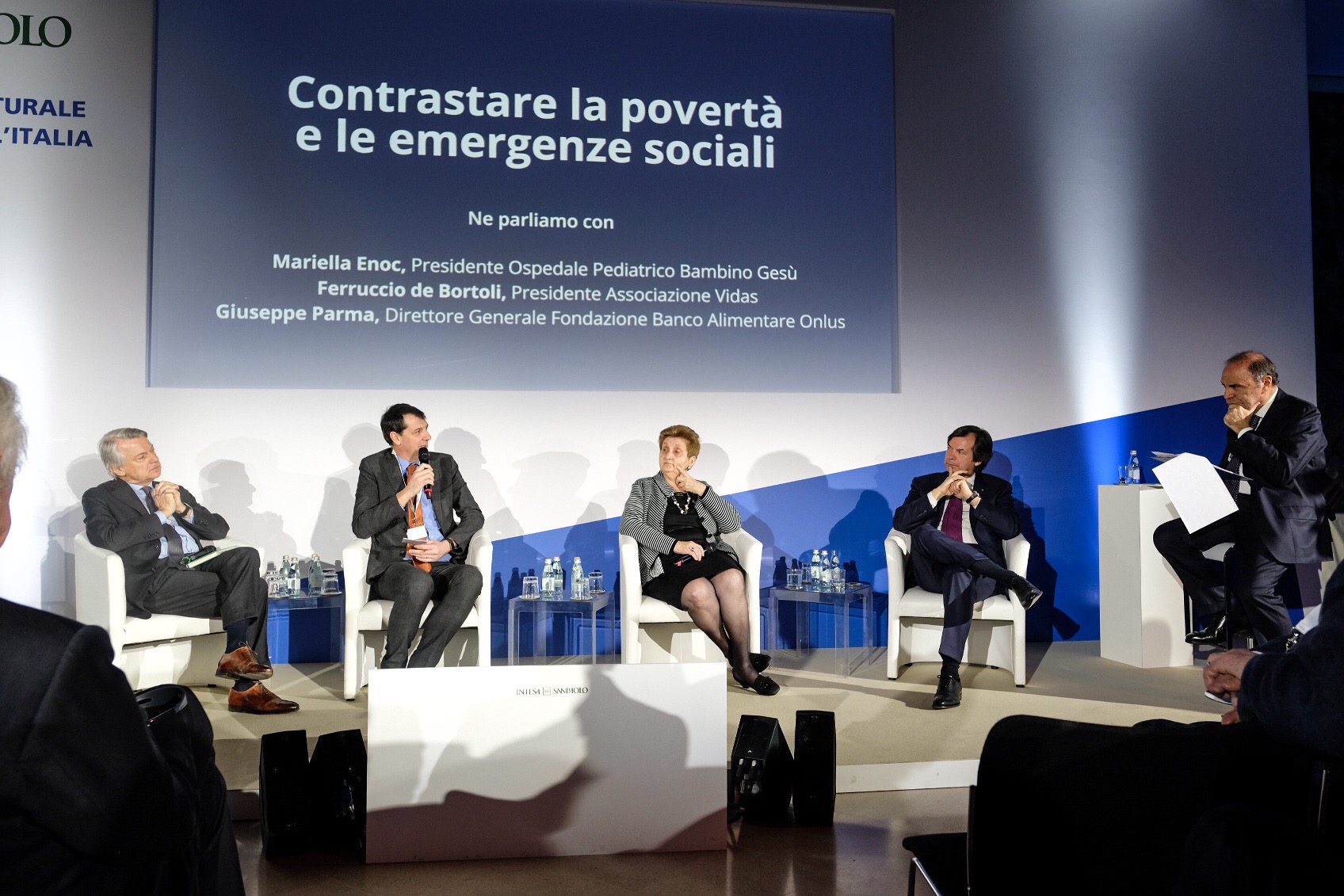Messina: “Intesa Sanpaolo invests in the training of five thousand young people”
Intesa Sanpaolo will be supporting the training of approximately 5,000 young people over the next 3 years, in order to help them enter the labour market, within the context of its partnership with Generation, a global non-profit initiative created by McKinsey & Company in 2015, with the aim of contributing to reducing youth unemployment. This was announced by Managing Director Carlo Messina at the end of the conference “Intesa Sanpaolo’s social and cultural commitment for Italy” which saw the participation of eminent Italian and international figures. One year on from the presentation of the strategic plan, Messina reiterated the concept that “helping the needy, focusing on young people, protecting and valorising the country’s artistic and cultural heritage, and supporting the circular economy, are all in our Group’s DNA and represent the Group’s identity, and we want to continue to invest in order to deal with individuals’ difficulties: we are flying the Italian flag abroad in this regard”. Messina emphasised “the strength of those foundations with interests in the Group’s equity”, and explained that “paying a lot of dividends to those foundations enables them to invest in order to meet the company’s requirements”.
Intesa Sanpaolo’s commitment to improving the living standards of Italians remains sound and constant: “At a time like the present, when the Country needs to grow, we are doing our bit” the Managing Director added, before also specifying that “the Citizenship Income scheme could be improved on, but for now let’s assign the funding to those who need it, and then we can think about improving the scheme”.
The Chairman of Intesa Sanpaolo, Gian Maria Gros-Pietro, explained that “the markets require companies to have more than just financial targets, because when society suffers then everything is at risk, and those operating in the economic and savings sectors, like the banks, have to act”.
He thus added that “Intesa Sanpaolo is focused on its social and cultural commitments”. Giovanni Bazoli, the celebrated Chairman Emeritus of Intesa Sanpaolo, reminded those present that the social and cultural model is an innate part of the Bank’s actions, and that such social actions reflect in full the “spirit of the Constitution and compliance with the principle of subsidiarity”.
Gros-Pietro: “Intesa Sanpaolo is focused on its social and cultural commitments”
The speakers, coordinated by Bruno Vespa, who took part in the conference’s in-depth sessions, included Rob Kapito, Chairman of BlackRock, one of the largest investors in the world. Kapito acknowledged that “Intesa Sanpaolo is a benchmark at international level: a company needs a purpose, and not only that of making profits, and in this regard Intesa and BlackRock must together lead the drive for sustainability, to help young people and those in need”.
Mariella Enoc, Chairwoman of the “Bambino Gesù” Children’s Hospital which this year celebrates its 150th birthday, argued that “the new forms of poverty derive from new forms of egoism”, and that the ambitious aim is to build “a hospital for young cancer patients and a centre for palliative treatment”. Ferruccio de Bortoli, Chairman of the Vidas Association, thanked Intesa Sanpaolo for the support provided and the contribution made towards the construction of the “ Casa Sollievo Bimbi Children’s Hospice which will be opening on the 27th of March”. On the question of new forms of poverty, Giuseppe Parma, director of Banco Alimentare, explained that they were the result of one thing: “In our country, 5 million tons of surplus food is produced, but only 90,000 tons of this is recovered and utilised. Proving needy people with a meal helps protect their personal dignity, and only the commitment and cooperation of public and private concerns will be able to resolve this emergency”.
The session dedicated to art and culture was opened by Roberto Bolle, the étoile of Milan’s Scala Theatre, who recounted his story as a ballet dancer, which began with his attending the prestigious Scala ballet school, and invited young people to “work hard every day, and to make sacrifices, if they want to be successful”. Michele Coppola, Director of the Art, Culture and Historical Heritage Department of Intesa Sanpaolo, argued that “for young people, art and culture must represent opportunities for employment and for personal growth, particularly in a country like Italy with its incomparable artistic heritage”. The Vice-Chairman of the FAI (the Italian National Fund for Environmental Protection) Marco Magnifico, reminded those present of popular involvement in the protection of the country’s artistic heritage, with around “5 million votes expressed in favour of a “Place of the heart”, even though at times “bureaucracy and envy prevent the necessary works from being completed”.
Furthermore, Intesa Sanpaolo is striving to become the first Impact bank in the world, and this issue was illustrated by Livia Pomodoro, Chairwoman of Impact’s advisory Board, who called the “Per Merito” unsecured loan “an amazing turning point in regard to access to a university education”: this loan scheme will come into operation on 25 February next year, the loans will be unsecured, and 1.6 million Italian university students are set to benefit from it. Marco Morganti, head of management at Impact, illustrated the creation of the Fund for Impact, a 250-million-euro fund which will enable loans to be granted for a total of 1.25 billion euro to people who up until now have been excluded from receiving such funding.
The Circular Economy is the new frontier of development, and this was the topic discussed by Andrew Morlet, CEO of the Ellen MacArthur Foundation, when expressing his appreciation for the 5-billion-euro credit line granted by Intesa Sanpaolo to enterprises who intend to develop in this direction: “ISP is our global partner and its decisions are going in the right direction to change the model of production and development”.
The last chapter is given over to the question of the South of Italy. Gaetano Miccichè, Chairman of Banca Imi, made reference to the responsibilities of the State, declaring that “it is unacceptable to have one part of Italy - the North - with a GDP growth rate of 2%, while the growth rate for the other half - the South - is zero”. Marco Alverà, CEO of Snam, illustrated his group’s significant investments in the South of Italy “in natural gas and solar energy, both industrial activities suited to the South”. Finally, the Chairman of the Italian Employers’ Federation (Confindustria), argued that the model needs to change, and that the “southern question needs to become a national question, otherwise nothing will ever change”.
January 2019


